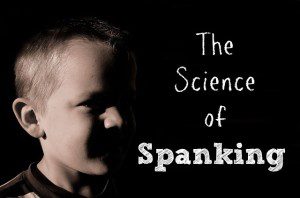 There are pictures of NFL player Adrian Peterson’s preschool sons with facial scars and leg lacerations from his discipline techniques. The latest accusations include a head wound Peterson said occurred while disciplining his 4-year-old for cursing at his sibling. In February 2014, a Kansas lawmaker tried to introduce a bill that would have allowed school teachers to spank up to 10 times. In April 2014, Children’s Mercy Hospital announced that all eight of its locations are “No Hit Zones.” CMH is one of a handful of hospitals across the nation beginning to educate the public about physical punishment (sample of one of their parenting handouts). Then there is Peterson who pushed the topic back in the national spotlight. Check out one ESPN commentator’s emotional statement during a discussion about Peterson’s behavior:
There are pictures of NFL player Adrian Peterson’s preschool sons with facial scars and leg lacerations from his discipline techniques. The latest accusations include a head wound Peterson said occurred while disciplining his 4-year-old for cursing at his sibling. In February 2014, a Kansas lawmaker tried to introduce a bill that would have allowed school teachers to spank up to 10 times. In April 2014, Children’s Mercy Hospital announced that all eight of its locations are “No Hit Zones.” CMH is one of a handful of hospitals across the nation beginning to educate the public about physical punishment (sample of one of their parenting handouts). Then there is Peterson who pushed the topic back in the national spotlight. Check out one ESPN commentator’s emotional statement during a discussion about Peterson’s behavior:
With physical punishment still being a hotly debated topic, many have raised eyebrows, asking, “What’s the big deal?” I’m a normal, down-in-the-trenches mom. If you ask my kids if Mommy’s ever spanked them, they’ll say yes. Unlike parents that regularly use a spoon, switch, belt or hand to “guide,” in those rare moments I’ve resorted to spanking, I felt intense remorse. I felt separation and disconnection from my babies who, when they came out of my body, I wanted to put them back inside to protect them. Being the source of their fear and pain in those moments reminds me of my imperfection. They know that Mom isn’t perfect. They know how to forgive. Our relationship repairs teach my children that, even though we make mistakes, both I and they are lovable and capable of getting back to the “good.”
People react intensely to spanking, saying, “It’s a controversial topic.” But to scientists, it’s not controversial. There’s generally a 15-year lag between research and practicing professionals, and another 15-year lag between clinical practice and the public, putting 30 years – 1 or 2 generations – between research findings and public acceptance. With spanking, we are currently in the second lag time. Across child development professions and legislation, it is well understood that physical punishment limits our ability to develop and learn in a healthy way. Here’s what the U.S. Dept. of Health and Human Services and the American Humane Association say about it. The Global Initiative to End All Corporal Punishment of Children names 38 countries that have banned it.
The U.S. is not on the list.
To spank a child is to humiliate and hurt a child in order to suppress a child’s maladaptive, distressed behavior, rather than teach prosocial, desirable behaviors. If you want to make choices about what venue to use to educate your children, have a white meat-only diet, teach your kids to cook and do laundry, drive a horse-and-buggy instead of a car, worship in a church or a mosque, be my guest. We all have the right to parent with our own preferences, but physical violence is a non-negotiable and does not fall into the category of “I’ll do what I want.” Neuroscientists call the flooding of fear a stress “brain bath.” This CNN article compiles studies showing that spanking changes the developmental trajectories of the brain, correlating decreased amounts of gray matter in the brain with children who are regularly spanked.
It’s the same basic process that happens when a sabertooth tiger chases us in the jungle.
- A stronger, faster, larger person comes at a child with force.
- The amygdala, an almond-shaped organ and the threat-detector of the brain, fires a message, “I’m not safe!” It activates the Fight/Flight/Freeze System.
- Cortisol (the “stress hormone”) is produced in high quantities from the adrenal glands. A colleague of mine calls it “pouring diluted Clorox on the brain.” The only way to significantly eliminate cortisol from the body, other than preventing its production in the first place, is through emotional tears (which parents often suppress with, “quit your crying!”) and sweat from physical exertion (think of the exertion of running away from a bear or lifting a burning car off of a loved one).
- The sympathetic nervous system takes over the body. Reproductive and digestive systems become slack (sometimes resulting in a child peeing or pooping their pants), pupils dilate, heart rate increases … you get the idea.
- Cortisol triggers neurotransmitter spikes: dopamine, glutamate, adrenaline, noradrenaline. When dopamine levels are too high/low, we see impulsivity, inability to focus, and an absence of learning. High glutamate levels are associated with aggressiveness. Boys are vulnerable, as they tend to externalize their emotions physically and get into even more trouble, increasing the risk of being spanked again. Girls tend to internalize with shame and low self-esteem.
- Fear shuts down the hippocampus, responsible for memory processing, so often the child will have no memory of why they were spanked.
- Blood flow to the prefrontal cortex decreases, particularly the left hemisphere, the part of the brain responsible for reason, cause-effect associations, chronological organization, verbal skills, speech production, learning and memory. If you ask a child to speak to you while you’re disciplining them harshly, they will often not be able to speak or recall clearly with their verbal skills. If you’ve asked your child to recall why they’re in trouble, ever heard a whiny, drawling, “I don’t knoooooooow …”?
Some might say, “Well, it works. I get compliance from my child.” That depends how you measure success. Because of the physical domino effect of stress to the child above, physical punishment is correlated later in life with increased cancer, diabetes, obesity, suicide, heart disease, smoking, mental illness, relationship problems, substance abuse. (Look here, here, here, here.) It works because your child is afraid, but the long term physical and emotional damage is done and gives your child a reason to want to avoid you. Some might say, “Well, I am against spanking, but in extreme circumstances, like when a child is about to run out into the street, it’s appropriate to startle the child to show the magnitude of the situation.” The brain reacts to the shock with the steps above, and in extreme circumstances, you certainly want them to have optimal brain function to learn danger. All the child will remember is that they got spanked, and you did it.
Physical punishment by a caregiver creates a fusion between love and pain, and we wonder as a society why bullying and un-empathetic kids are an issue, why cutting among teens has become a culture or why we have so much difficulty with dating, marriage, divorce and love. If you spank as a method (as opposed to “spanking out of anger”), perhaps the science of spanking will help you reconsider because premeditated spanking is premeditated neurological abuse – you may not see bruises and lacerations, but a child’s brain, internal systems, and relationships pay a steep long-term price. If you have time to think about it beforehand, then you also have time to read and learn. Before commenting on this post, I challenge you to read the 30 years of research, with an overwhelming 93% agreement among studies that physical punishment leads to negative outcomes.
Spanking is an adult self-regulation and expression problem. If you believe you are calm when you spank, consider this: if you were hooked up to bio-monitors while spanking your child, even if you were calm to begin with, the bio-monitors would show spikes in your own cortisol, sympathetic nervous system reactions, and excitatory neurotransmitters as a result of your engaging in aggression. Spanking is not healthy for your child’s brain, but it’s not healthy for yours, either. For those of you who want to use other methods, but think you might resort to spanking:
- Check out the Research and Resources available online.
- Examine your own ability to name negative emotions, thus regulating your temper. When you model self-regulation and appropriate expressions of anger, you model these skills to your children, called vicarious learning.
- Try self-care through venting sessions with a counselor or massage, which decreases cortisol production and increases empathy.
- Take a look at how you were parented. Perhaps you are an adult who developed in spite of your parents’ physical punishments or humiliations. Here’s the Adverse Childhood Experience (ACE) Scale used by professionals.
No matter how you were parented as a child or what your personal beliefs on this topic might be, please don’t ignore the science behind what continuing this pattern with your child will mean for years to come.

















Ok, what are good ways to discipline the child? Need more than just don’t do that.
Hi Julie –
Thanks for the feedback, and that’s a great question! We will work on some additional posts on positive discipline. In the meantime, there is a link to some resources (from other sites) at the bottom of this post that you can look at, and just YESTERDAY, my favorite professional author (Dan Siegel, PhD) published a new book called No Drama Discipline (http://www.amazon.com/No-Drama-Discipline-Whole-Brain-Nurture-Developing/dp/0345548043/ref=sr_1_1?ie=UTF8&qid=1411665930&sr=8-1&keywords=no+drama+discipline) that has already made it to the Bestseller List like his previous releases. It’s going to be a good one! Hope this helps, and I’ll get to work on future posts inspired by your question.
Vanessa Knight
There is also a fabulous program called 1,2,3, Magic which can help parents and teachers discipline very effectively without losing emotional control Anyone who spanks a child in a moment of fear or anger, who then repairs the relationship with that child can be understood. i have made that mistake too. but never on purpose! who can think that deliberately hurting a child is ok? There are so many other ways to teach a child while showing love, control, and emotional stability. Physical violence committed against a child is not discipline.
Such horse [expletive]. That’s y the kids of today r selfish little brats.
wihoa – seriously defensive Amanda!
This article is a one sided, closed minded, condemning and most certainly secular view on the topic of physical discipline. It would be nice to hear from a Christian biblically based perspective as well such as Ted Trip, Elizabeth Fitzpatrick or Richard Fugate.. There are a lot of Christian moms in KC who are probably disappointed with this biased, uniformed and demonizing article of those who spank.
Physical punishment should be defined as the improper use of spanking, while discipline could be argued as the proper administration of the rod. Discipline does not create confusion, the lack of providing guidance and boundaries does.
Here is an encouragement for those Christian parents who read this article with dismay:
Those who reject God’s Word speak from their knowledge of the world philosophies (psychology and false religion) because: They are of the world. Therefore they speak as of the world, and the world hears them. We are of God. He who knows God hears us; he who is not of God does not hear us. By this we know the spirit of truth and the spirit of error. (1 John 4:5-6)
Don’t be afraid to follow the biblical principles provided you do so with the grace and love of the gospel of Christ.
Get some rocks, Joy.
If a man have a stubborn and rebellious son, which will not obey the voice of his father, or the voice of his mother, and that, when they have chastened him, will not hearken unto them:
Then shall his father and his mother lay hold on him, and bring him out unto the elders of his city, and unto the gate of his place;
And they shall say unto the elders of his city, This our son is stubborn and rebellious, he will not obey our voice; he is a glutton, and a drunkard.
And all the men of his city shall stone him with stones, that he die: so shalt thou put evil away from among you; and all Israel shall hear, and fear. Deuteronomy 21:18-21
Hi Joy,
Thank you for contributing to the discussion. I would encourage you to read through #6 of this article regarding the rod, or “shebet,” in Hebrew writings: http://www.askdrsears.com/topics/parenting/discipline-behavior/spanking/10-reasons-not-hit-your-child.
I would also encourage you to take a look at the life of King Rehoboam, Solomon’s son, and how he managed his reign. The Bible reports that he was widely hated, had little consideration of human rights, was unfeeling and vicious. If we assume that he was parented in the way that Solomon suggests in the Proverbs passages, we may learn that the Bible actually teaches that physical punishment of a child results in an adult like Rehoboam.
Again, thanks for jumping in to the conversation!
Vanessa Knight
Hey guess what? The bible does NOT command spanking. Those verses have been grossly misinterpreted by people who are only human and therefore make mistakes. Check out Jesus The Gentle Parent by L.R. Knost. It’s wonderful. I am a Christian. Jesus’ message was all about love and forgiveness. I could never imagine Jesus spanking a child or condoning it. He always said let the little children come to me and told us to be more like children if we want to get into heaven.
Discipline means training to develop self control; orderly conduct; a system of rules. just as a disciple is one who follows a teacher or school. so…. hitting as a means to develop self control? i dont think Jesus beat up any of this followers – he taught them and loved them. He may even have gotten angry at them, but hitting? not there!
Until now I have enjoyed the articles posted here. There is a major difference between abuse and discipline. When a parent chooses to spank not out of anger but out of love and a desire for their child to learn it can be beneficial. When a parent spanks out of anger they stray dangerously close to abuse. I think we need to quit using it as the last resort (anger) and use it as the second resort (you didn’t listen therefore there are consequences).
Hello Kimberly,
I’m glad you joined the discussion! You are right that there is a major difference between abuse and discipline, as discipline is “training” or “guiding,” and the definition of the word “discipline” does not necessarily involve any degree of corporal punishment. A “disciplined” pianist practices his music regularly, a “disciplined” student does her assignments and homework on time, for example. 93% of studies show that regular, intentional spanking is not beneficial to a child. As our ability to study the brain grows, we are actually finding evidence of negative effects from “abusing” a child’s neurological system, and thus, redefining what it means to “abuse.”
As I mentioned in the post, when parents spank “out of love,” we fuse love and pain, teaching the opposite of what most of us seek in a loving friendship or adult relationship. When we look for love, we seek gentleness, patience, self-control, kindness. These things are congruent with love. Hitting is incongruent with love. Thus, the regular, calculated hitting of a child is emotionally/psychologically abusive, teaching a child to expect pain from those they should trust.
To answer you regarding using spanking as a “second resort,” we are planning some posts for alternatives to using spanking as a resort of any kind in the future, as there are many! Please consider looking into redirection, choices, compromises, time-ins (and “taking a break”) as at least four options to resort to! I hope you will be open to those suggestions!
Again, glad to have your perspective in the comments!
Vanessa Knight
It is almost scarier to me to imagine a parent who will calmly, deliberately sit down and spank a child. what kind of “logical consequence” is that? It’s another example of doing something because you’re not willing to consider a better way. why do people want to defend hitting? I really cant understand this mind set. wouldn’t anyone want to find a better, more effective way to raise a child? I received a wonderful poem when my first child was born, called Children learn what they live. Some years later I bought the book by the same name. So worth reading. I did not follow it perfectly but I tried, and i have two wonderful, kind, loving, adult children today.
Very thought provoking post. I like how you incorporated the brain chemistry. I’ve always thought that the anger and fear responses would get in the way of learning. There are much better ways to discipline and hold the child accountable. Plus, when you consider that most parents spank at inappropriate infractions it creates much more confusion.
I agree, Nick. This was a great article addressing the science behind spanking– for the child and the parent. Vanessa, this will be a good reference article for me to use as speaking points. Thank you!
Good comment! Maybe when the brain research becomes more wide spread, and people can actually see the physical changes to the brain, they will become convinced. some similar research is out there about test anxiety and the stress that it causes – it actually makes children less likely to remember what they have been taught, and therefore do worse on the test. So if discipline is meant to be a teaching tool, hopefully the brain will remember the lesson. Less fear, less stress – more likely to learn.
For a thought-provoking exploration of what the Bible actually teaches regarding parenting, I invite you to read Jesus: The Gentle Parent; Gentle Christian Parenting.
In this examination of mainstream Christian parenting practices and the doctrinal beliefs behind them, best-selling author, L.R.Knost, debunks common cultural and theological beliefs about spanking, original sin, sin nature, submission, authority, obedience, breaking a child’s will, and more, along with providing grace-filled, gentle solutions to behavior issues.
I agree there’s no reason to ever spank! You will never teach respect by hitting your child..period! And my question to all if you who believe hitting(call it spanking if it helps you live with yourself) works then if that’s true why do you keep hitting if it works it should only happen once and they’d never do anything wrong again!? It doesn’t work! There are plenty of ways to discipline your child without this behavior! Heck get Super Nannys book or if that’s to much watch her show on UP tv! She will show you ways that work and proves it each episode!
Awesome article and research. I will re post. I was spanked by father not mother and to this day have no relationship with my father, but great with my mom. Too many bad memories. I have raised and still raising 4 kids (20 boy,18 girl,12 girl & 8 boy) I DONOT spank. Instead I have always explained and gave children choices to redirect behavior, depending on their age. All my kids are well behaved. Some people say to me wow, your kid is so calm and well mannered, doesn’t jump and destoy things, so polite. I will be honest, each one is differant and what works with one wont work with them all. What I found works the best, is explaining why what they are doing is upsetting or dangerous or I just plan don’t like it. Tell them how it makes me feel. Encourage possitive things, don’t just point out behavior you don’t like. Tell them what is not allowed and why. As adults I don’t always have great days and I feel tired or cranky, so do children. Have we ever snapped at someone cause we are tired and having a bad day, well kids are no differant. Show respect and you will get respect. Dont ever take away a kids dignity. Not saying I have the answears, I don’t but this is what has worked for me. And let me tell you, my 18 yr old girl has pushed, but I never spanked her. She even says to me now, how did I never spank her. lol. Which is funny cause she is for spanking, so I’m going to show her this article.
How does one account for the flood of great minds that history highlights before this generation of no hitters came about?
they got lucky? someone else significant contributed to their life while they were young and it helped them overcome it? who knows? weren’t there any great minds that had parents who were “no hitters?” great people can survive terrible things and still be great people – that does not mean we should set out to do terrible things! no logic here Leonardo!
Actually, spanking IS still controversial among scientists … it’s good to have well-supported opposing views in science. Here’s one: http://committedparent.wordpress.com/2010/03/20/why-its-harmless-to-spank-your-kids-if-theyre-black/
Hi Mark,
Thank you for the link to what appears may be a blog post you wrote in 2010! If this is not your post, I’d encourage anyone following this thread to read it in its entirety because I would hate for anyone who reads your comment to see the title of the blog “Why It’s Harmless to Spank You’re Kids… If They’re Black” and not read further. This blog posts makes brief mention of a Duke University study (to those who are interested, I believe this may be it, although it’s not cited http://www.ncbi.nlm.nih.gov/pubmed/15056311/) that represents the 7% of inconclusive or confounding studies (above, we mention 93% agreement among researchers, not 100%), which is related to cultural context and environment. This study is over 10 years old, and since there have been recent and more biologically based studies (as opposed to self-report as in this study) that have shaped understanding among scientists. In our post, we are discussing the neurobiological effects of spanking, not the specifics of perception among different cultures. In the last paragraph of this post from 2010, the author makes the same assertions about the neurobiological effects of physical aggression and humiliation that we have made in this post, so this is actually a supportive article. It reiterates the negative effects on parents observing physical aggression:
“They became limbically hijacked, expressing various degrees of confusion, hilarity, shame, anger, embarrassment and betrayal. It clearly made them uncomfortable, even after I would disclose the collaboration of the willing confederate. When I would try to explain that as these feelings were triggered in them, so were large releases of cortisol and adrenaline, which are known neural inhibitors – glucocorticoids that prevent us from thinking straight. And this powerful reaction was going on with people (the parent members of the class) who were only watching! Imagine what the experience is like for the child on the receiving end who’s not a confederate, who won’t have a fully developed brain until age 25 or so. My intent was to actively demonstrate that hitting kids is not only neurologically compromising for the kids, it’s probably even worse for parents, much the way that killing people is detrimental for soldiers and policemen in the subsequent degree of PTSD they later develop. Sadly, based on current national spanking statistics, I don’t think that understanding happened.”
I also hope we can agree that all humans, regardless of ethnicity, are entitled to be treated with dignity, respect and to have their basic emotional needs for comfort, acceptance and protection met by an attachment figure. If one would not approve of hitting a spouse or adult partner or work colleague an average of 3-5x/week, then we certainly should afford the smallest of our species the same respect and rights to safety as their little brains develop.
Thanks for contributing to the discussion,
Vanessa Knight